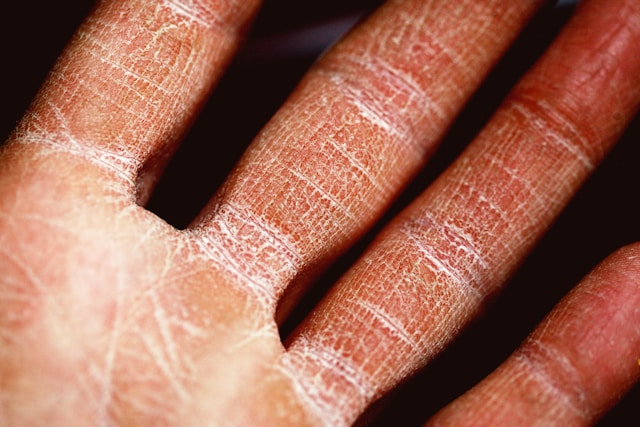When dealing with eczema-prone skin, it’s crucial to avoid certain cosmetic ingredients that can trigger irritation, dryness, or flare-ups. Here’s a list of ingredients to watch out for:
1. Fragrances
- Synthetic Fragrances: These are common irritants and can cause allergic reactions in people with sensitive skin, including those with eczema.
- Natural Fragrances: Even natural essential oils, like lavender or citrus oils, can be irritating to eczema-prone skin.
2. Preservatives
- Parabens: Commonly used as preservatives, parabens can sometimes cause allergic reactions in sensitive skin.
- Formaldehyde Releasers: Ingredients like quaternium-15, DMDM hydantoin, imidazolidinyl urea, and diazolidinyl urea release small amounts of formaldehyde, which can irritate the skin.
- Methylisothiazolinone (MIT) and Methylchloroisothiazolinone (MCI): These preservatives are known to cause allergic reactions, particularly in those with eczema.
3. Alcohol
- Ethanol, Denatured Alcohol (Alcohol Denat.), Isopropyl Alcohol: These types of alcohol can be very drying and irritating, exacerbating eczema symptoms by stripping the skin of its natural moisture.
4. Harsh Surfactants
- Sodium Lauryl Sulfate (SLS): This is a harsh detergent found in many cleansers and shampoos, known to strip moisture from the skin, leading to irritation.
- Sodium Laureth Sulfate (SLES): While less harsh than SLS, SLES can still be irritating to sensitive skin.
5. Artificial Colors and Dyes
- FD&C and D&C Colors: These synthetic dyes can cause allergic reactions and irritation, particularly in people with sensitive or eczema-prone skin.
6. Certain Plant Extracts
- Tea Tree Oil, Peppermint, and Menthol: While these natural extracts have beneficial properties for some skin types, they can be irritating and cause flare-ups in those with eczema.
- Witch Hazel: Often used as a toner, witch hazel can be drying and irritating to sensitive skin.
7. Urea
- Synthetic Urea: Although urea is a natural component of the skin’s moisturizing factor, synthetic versions can be irritating and may exacerbate eczema, especially if used in high concentrations.
8. Retinoids
- Retinol, Retinoic Acid: These vitamin A derivatives are powerful anti-aging ingredients but can cause significant irritation, dryness, and peeling, which can aggravate eczema.
9. Exfoliating Acids
- Alpha Hydroxy Acids (AHAs) and Beta Hydroxy Acids (BHAs): Ingredients like glycolic acid, lactic acid, and salicylic acid can be too harsh for eczema-prone skin, leading to irritation and increased sensitivity.
10. Lanolin
- Lanolin: While it’s a natural moisturizer, some people with eczema are allergic to lanolin, leading to contact dermatitis.
11. Cocamidopropyl Betaine
- Cocamidopropyl Betaine: Often used in cleansers and shampoos as a foam booster, this ingredient can be irritating to some people with sensitive or eczema-prone skin.
12. Propylene Glycol
- Propylene Glycol: Used as a humectant to keep products moist, it can cause irritation or allergic reactions in people with sensitive skin.
When choosing products for eczema-prone skin, it’s best to look for those labeled as “fragrance-free,” “hypoallergenic,” and “for sensitive skin.” Patch testing new products before full application can also help prevent reactions. Opt for gentle, moisturizing ingredients like ceramides, hyaluronic acid, and shea butter, which are generally well-tolerated by sensitive skin. If you want to learn how to make your own skincare products and take control of what you put on your skin , here it is my ebook with 21 natural recipes and method for face and body which are fantastic for sensitive skin.
